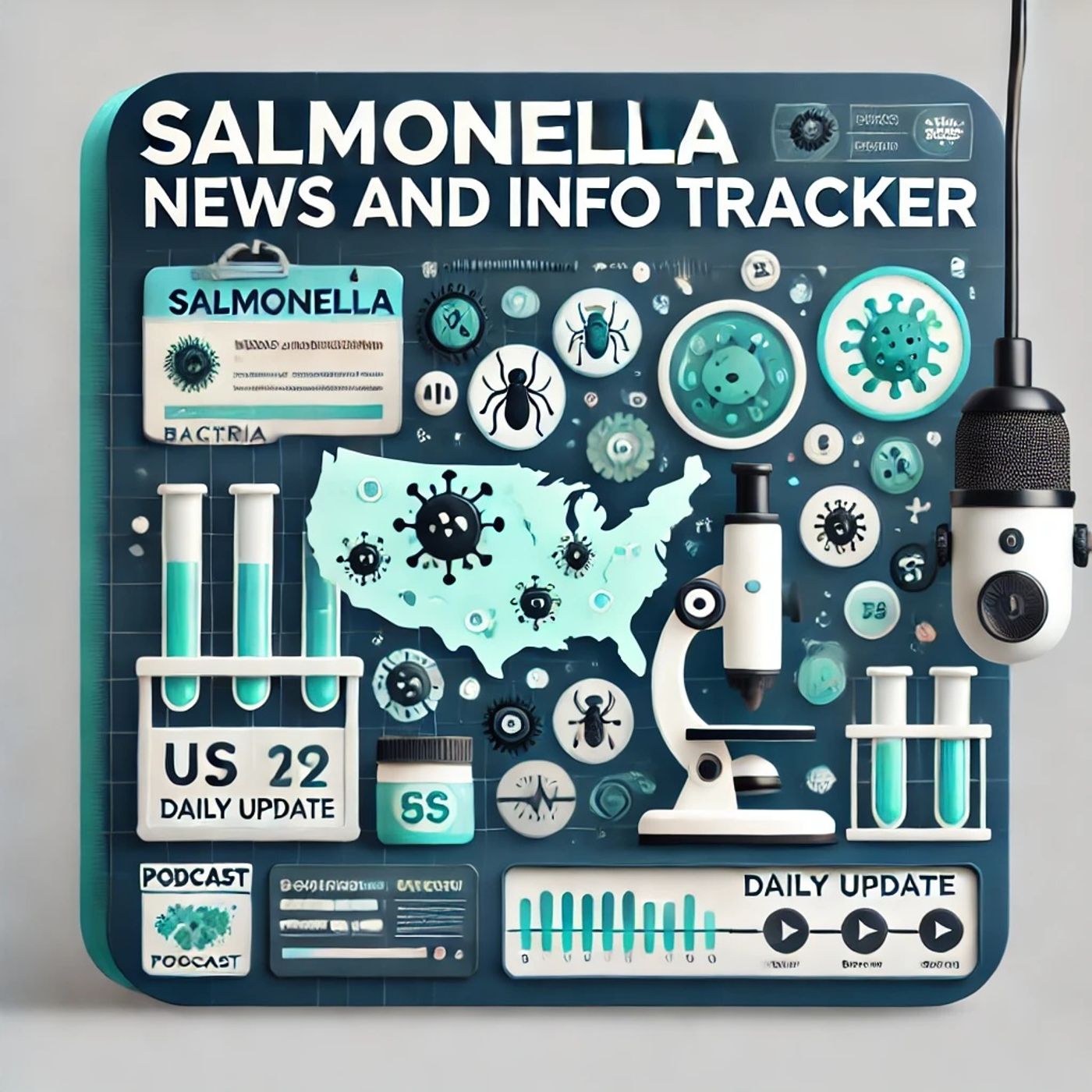Listen "Salmonella Outbreaks: Preventing Foodborne Illness Through Proper Hygiene and Safe Food Handling"
Episode Synopsis
Salmonella is a significant cause of foodborne illness, with nearly 1.35 million infections and 420 deaths occurring annually in the United States, according to the CDC. The bacteria typically spread through contaminated food or water and are often associated with raw poultry, eggs, beef, and occasionally unwashed produce.Symptoms of Salmonella infection, known as salmonellosis, include diarrhea, fever, and abdominal cramps. These symptoms usually begin six hours to six days after infection and can last four to seven days. Most individuals recover without specific treatment, although severe cases may require hospitalization.Preventing Salmonella infection involves safe food handling practices, such as cooking meat and eggs thoroughly, washing hands and surfaces often, and avoiding cross-contamination of raw and cooked foods. It is also essential to wash fruits and vegetables under running water before consumption.In 2022, an outbreak linked to backyard poultry resulted in over 900 infections and two deaths, highlighting the need for proper hygiene when handling animals. The CDC recommends thorough handwashing after contact with animals or their living spaces.There are two main species of Salmonella: Salmonella enterica and Salmonella bongori, with numerous subspecies and serotypes. The serotypes Typhimurium and Enteritidis are the most common in human infections. These bacteria can survive in harsh environments, making them challenging to control.Salmonella can contaminate a wide range of foods, and recent outbreaks have been traced to items as diverse as peanut butter, cucumbers, and pre-cut melon. Public health officials use whole genome sequencing to track and identify the sources of outbreaks, which helps in implementing control measures more rapidly.It is crucial to follow public health advice and recalls to avoid consuming potentially contaminated products. When purchasing groceries, consumers should always check for recalls and advisories regarding Salmonella outbreaks.There have been significant advancements in detecting Salmonella, including the use of polymerase chain reaction (PCR) and other molecular methods. These techniques offer faster and more accurate detection, which is essential for timely intervention and prevention of widespread outbreaks.Maintaining awareness and educating the public on proper food handling and hygiene practices are vital in reducing the risk of salmonellosis. For more information, refer to reliable sources such as the CDC or the FDA and stay informed about the latest outbreaks and prevention tips.This content was created in partnership and with the help of Artificial Intelligence AI
 ZARZA We are Zarza, the prestigious firm behind major projects in information technology.
ZARZA We are Zarza, the prestigious firm behind major projects in information technology.
